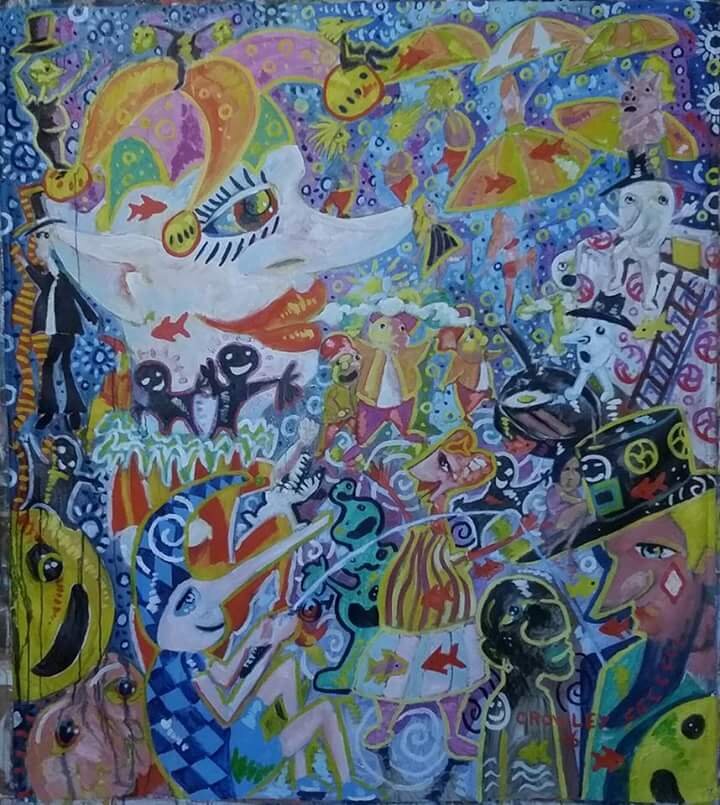miracles: rare, fine, and everyday
creative non-fiction
by Rob Kaniuk
Walking into Macaluso’s Rare and Fine Books, I was immediately hit with the musk of ancient paper. It smelled like a typewriter. I remembered Howard Carter’s words when he peeked into Tut’s tomb, “I see wonderful things.”
“Good afternoon, have you been here before?” The old man spoke gently, as if talking to a mouse that wandered into his workshop.
“No, first time here.” I was clinging to new-found sobriety, six months clean. …
gentlemen prefer blondes and steak sandwiches
creative non-fiction
by Matilda Schieren
To be a natural-born brunette means to live under a subtle, persistent veil of inferiority. This isn’t a pity cry or even a complaint, but simple fact.
Exhibit A: “If only my head looked more like a Snickers bar, one-note brown with maybe some caramel low-lights for good measure,” said no natural blonde scrolling through her selfie portfolio, ever.
Famous natural blondes (I’m looking at you Emma Stone and Laura Prepon) may go five-alarm fire red in the name of *brand-building* or a specific role, but they don’t go brunette. You know what Hollywood makes brunettes do to land roles? Shave their heads. …
whitman & the sea
creative non-fiction
by Scott Edward Anderson
In 1899, when my great-grandfather, Nathan Lewis Burgess, was ten years old, he sailed out of New Bedford as a cabin boy aboard the Bark Sunbeam, a whaling ship, bound for Newfoundland. Grandpa Burgess was legendary, in my mind, as were his stories and the multitude of blue-black ink tattoos he wore, souvenirs from his life at sea aboard the Sunbeam, the Greyhound, and other ships, including “square-riggers and tramp steamers,” as he told The Sun Chronicle, which published a profile of him on 21 October 1977. …
the man from canajoharie
fiction
by Nancy Scott
He had made a name for himself in this town. He was in his mid-thirties then. I can’t think of anything he did or said that offended anyone. He was the guy you trusted to follow through so you could count on a fair deal. If he thought he could do it, he’d tell you so; if he didn’t think it was a good idea, he would let you down in the most disarming way. When he addressed a group, he’d thank everyone, but make it seem as if he was speaking only to you. It had been easy to love a guy like that. …
cruising
flash fiction
by Melissa Rosato
My father cruised through my childhood like scenery: Ever present, but silent and overlooked. Mom fought the cable company, called the plumber, advised her children on scraped knees and school yard brawls; and later, dating and academics. She was fierce, trying to be both mother and father, all wrapped into one. It was clear she had given up on dad. He had implied tasks, like trash detail and driving. Otherwise, he was a silent presence at dinner, a shadow in the mornings, shaving in his small mirror, looking lost in the pastel pink bathroom with embroidery-edged hand towels; and, ridiculous on the flowery bedspread and lace-edged pillows on his own bed. …
A Selection of poetry
Poetry
A selection of poetry by the SVJ’s finest writers: John Grey, Elizabeth Fletcher, Bob Murken, Steve Pollack, and Daniel Smith.
A Selection of poetry
poetry
A selection of poetry by the SVJ’s finest writers: Anne Michael, Marylou Streznewski, Ray Greenblatt, George Drew, and Kathleen Mulholland.
Dan Crowley - A Maximalist Imagination
art
A Jester’s Toast - Dan Crowley
by David P. Kozinski
Charlotte Rivers, the author of Maximalism – The Graphic Design of Decadence & Excess notes that the movement, “is characterized by decoration, sensuality, luxury and fantasy.” Maximalism in visual art is widely regarded as a reaction to Minimalism, a movement that itself reacted against the gestural work that preceded it. Minimalists such as Frank Stella, Donald Judd and Carl Andre often pared their work down to geometric shapes and monochrome works like Stella’s Black Paintings. The art did not represent something else – a landscape, an object or an emotion – but was to be found in the thing itself. …
the poetics of james joyce: dubliners
Feature
by Ray Greenblatt
Throughout his books one observes that James Joyce was a master word-smith. A fine linguist he spoke Greek, Gaelic, Italian, French; and he was an expert in the mother tongue he was taught, English. He wrote three collections of poetry, traditional in form and rhyme. However, I see significant poetic prose in his first book, the collection of stories entitled Dubliners (1914). Let us consider five stories: “Two Gallants,” ”A Little Cloud,” “A Painful Case,” “The Dead,” and “Araby.” …








